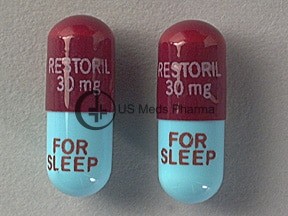2 results
What is insomnia?
Children with insomnia are very common. They may have difficulty going to sleep or having trouble staying asleep. Insomniac children may also be prone to waking up early. Children of all ages can have insomnia, including infants, toddlers, pre-schoolers, school-aged kids, and adolescents.
Sleep problems can have a significant impact on daytime functioning. Issues related to insufficient rest include difficulties with attention, fatigue, excessive sleepiness, behavioral problems like hyperactivity, poor impulse control, and emotional regulation issues. Furthermore, insomnia in children may force caregivers to be sleep deprived and disrupt family life.
What we can do to care for insomnia
The Sleep Centre at Boston Children’s Hospital can assist parents in addressing these issues. This can make a big difference in getting a good sleep.
Our team of specialists provides specialized care for your child.
Symptoms & Causes
What are the symptoms and signs of insomnia in children?
Children can experience insomnia at any age, from childhood to adolescence. In some cases, it can become a chronic problem. Symptoms include:
- Bedtime refusal and struggling to go to bed
- After lights out, “curtain” calls are common (such as asking for stories, drinks, or hugs).
- Having difficulty sleeping in bed
- Night wakings that are frequent and prolonged, with problems returning to sleep
- Wake up earlier than you want
- Resistance to a proper sleep schedule
- Having difficulty napping
- Trouble waking up in the morning or getting ready for school
Parents or caregivers often report that children with insomnia experience daily symptoms. Daytime symptoms include:
- fatigue, tiredness, sleepiness
- Attention, concentration, and memory impairments
- Problems with family, work, or academic performance
- Anxiety or mood disorders
- Behavioral issues (hyperactivity or aggressive behavior)
- Reduced Motivation
- Poor decision-making, impulse control, and poor decision-making
- Low tolerance for frustration
What causes insomnia in kids?
Sleeplessness is often a symptom of something else. Some of the possible causes of insomnia include:
- Another sleep disorder (such as restless leg syndrome or obstructive sleeping apnea).
- Anxiety or stress
- a medical, mental health, or developmental condition such as asthma, depression, attention-deficit/hyperactivity disorder (ADHD), or autism
- Certain medications, such as antidepressants or steroids
- Many types of energy drinks and sodas contain caffeine
Diagnosis & Treatments
What is the diagnosis of insomnia?
Sleep specialists can diagnose your child’s insomnia using these techniques:
- Take a detailed medical history, including mental health and developmental issues.
- Doing a complete physical exam
- A sleep diary is kept by the parents, caregivers, or child (if they are old enough). The log will help you track your child’s sleeping patterns and amount of sleep for an extended period of time.
- Following your child’s sleeping patterns for two to three weeks with an actigraph, a validated wristwatch-like device.
- In rare cases, the sleep specialist may recommend an overnight sleep study if they suspect additional sleep problems, such as sleep apnea or excessive movement during sleep. Sleep studies are not necessary for the majority of insomniacs.
What are the treatment options for insomnia?
It is good to know that insomnia can be treated, mainly when it’s behavioral. Some children are dependent on certain conditions to fall asleep. For instance, they may need to be rocked, fed, or have a parent nearby. A caregiver must help the child fall asleep when they wake up at night, as all children do. Other times, toddlers may resist going to bed, be unable to relax before bedtime or have an irregular or inappropriate sleep schedule. Changes in these behaviors and habits can improve sleep for all. A sleep specialist can help.
In older children or adolescents with insomnia, the behavioral strategies include active patient involvement in developing and implementing the treatment plan. It may be a program designed specifically for insomnia called Cognitive Behavioral Therapy for Insomnia or CBT-I.
What medications can help with insomnia?
In rare cases, behavioral therapy and sleep medication may be recommended for children with insomnia. It is most common in children with more complex medical or mental health issues. The Sleep Center at Boston Children’s Hospital works with families to determine the most appropriate and effective medication for these children.


